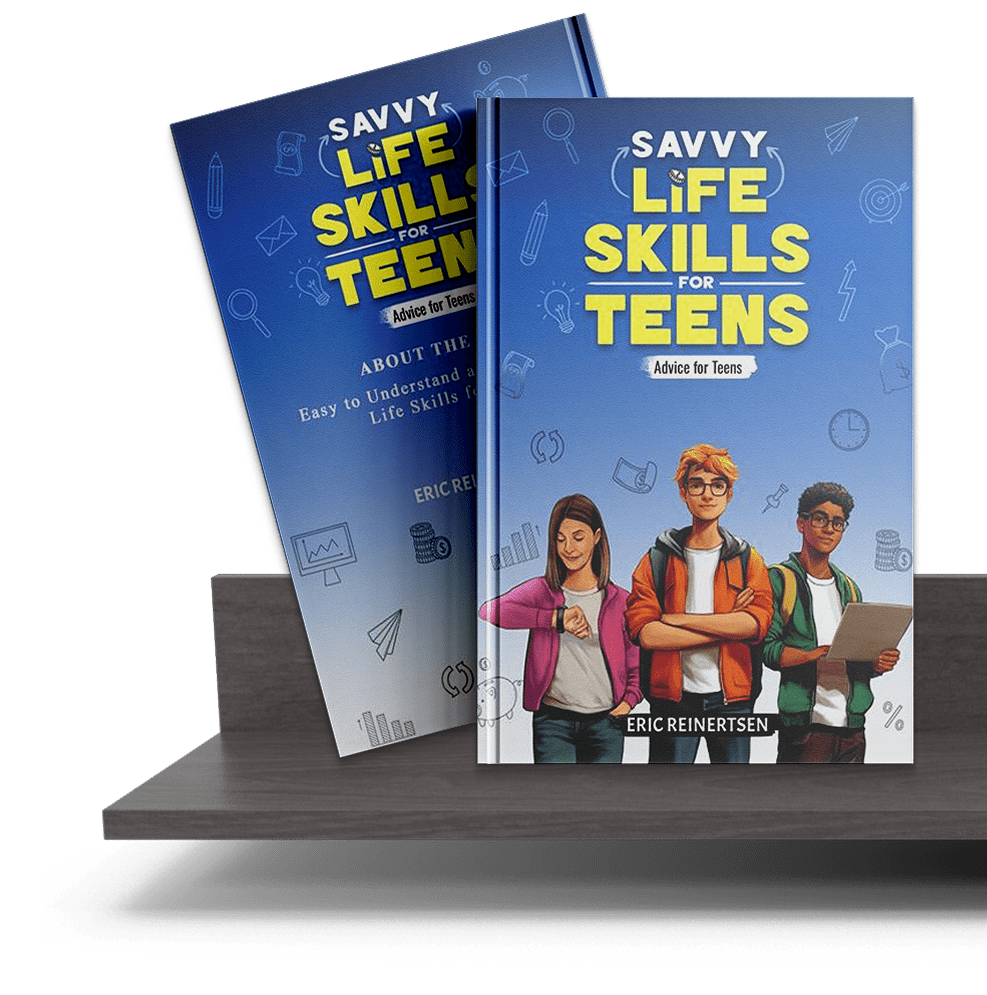Developing financial intellect early is crucial for every young adult. Life skills for teens teach accountability, decision-making, and money organization. Moreover, these skills authorize teenagers to navigate multifaceted financial circumstances confidently. Knowledge of practical requests, such as budgeting, capitalizing, and sympathetic taxes, prepares teens for upcoming independence. Additionally, grasping these skills builds confidence and reduces financial nervousness in adulthood. Joining guidance from books on financial knowledge can further strengthen these aptitudes. By combining interpretation with real-life movements, teens gain hands-on knowledge while reinforcing theoretical lessons. These applied tools enable them to make smarter financial choices, avoid common errors, and appreciate the value of long-term preparation. Consequently, capitalizing on time in life skills for teens guarantees a smoother transition into maturity, equipping them with information to manage money astutely and pursue individual goals with confidence.
The Importance of Life Skills for Teens
Teaching teens vital skills creates lifelong welfare. Life skills for teens extend beyond financial management to include critical thinking, problem-solving, and effective time management. Furthermore, these skills affect academic presentation, career readiness, and individual growth. In addition, they help teens adapt to changing circumstances, develop pliability, and make knowledgeable choices. Parents, educators, and counselors play a vital role in humanizing these habits. As a result, teens who understand the penalties of financial decisions early are more likely to uphold responsible money management as adults. Transitioning from theoretical knowledge to applied application ensures that teens retain and apply these lessons efficiently. Ultimately, concentrating on life skills for teens establishes a basis for personal achievement and long-term financial stability.
Understanding Tax Strategies Early
Financial literacy consists of knowledge of taxation. Tax strategies help teens understand income, deductions, and legal methods to improve their financial situation. Learning these plans prevents costly mistakes and inspires more effective financial management. Moreover, early contact with taxation concepts promotes accountability. Practical movements, such as faking tax filing or following expenses, reinforce knowledge. Teens who comprehend tax strategies can anticipate their financial responsibilities and plan accordingly, reducing stress in maturity. Additionally, combining these educations with budgeting skills augments overall financial literacy. Transitioning from simple clarifications to practical imitations ensures that teens adopt key concepts and grow confidence in treating real-world financial errands.
Recommended Books on Financial Knowledge for Teens
Guided reading improves understanding of money organization. Books on financial knowledge provide organized insights into investing, saving, and making wise financial decisions. Titles handmade for teenagers abridge complex concepts so that they offer relevant examples. Reading these resources lets teens grasp monetary principles outside classroom education. For instance, they learn about goal location, compound interest, and danger assessment through attractive narratives. Mixing lessons from books on financial knowledge with applied activities strengthens comprehension. Consequently, these books often comprise exercises that inspire critical thinking, rational analysis, and informed decision-making. Transitioning from theory to repetition ensures that teens retain knowledge efficiently, preparing them for real financial tests.
Practical Life Skills for Money Management
Effective money organization is a crucial life skill. Teens must study budgeting, following expenses, and savings goals. In particular, life skills for teens comprise understanding the difference between needs and wants, managing spending, and preparing for crises. Implementing these early fosters individuality and financial accountability. Parents and therapists can guide teens through simulations, discussions, and goal-setting actions. Moreover, combining these movements with lessons from books on financial knowledge strengthens sympathy. Transitioning from directed practice to self-governing management safeguards teens develop confidence and capability in handling money. These applied skills lay the basis for a financially secure future.
Combining Tax Strategies with Smart Spending
Understanding tax strategies improves financial decision-making. With knowledge about deductions, payments, and filing events, teens can exploit savings and avoid consequences. Applying these notions to budgeting helps them plan expenditures strategically. Furthermore, consciousness of taxation inspires ethical and legal financial decisions. Teens can practice by making sample tax procedures or tracking chargeable transactions. Mixing tax strategies information with life skills safeguards a well-rounded method to money organization. Transitioning from fake exercises to real-life requests builds confidence while making teens navigate multifaceted financial scenarios responsibly.
Developing Long-Term Financial Habits
Consistency is key to financial growth. Life skills for teens include strategies such as saving frequently, investing wisely, and managing financial progress. Founding these habits early decreases impulsive spending and inspires strategic thinking. Including insights from books on financial knowledge strengthens principles of monetary discipline and delayed gratification. Teens who repeat these habits comprehend the importance of preparation, risk organization, and assessing opportunities. Transitioning from short-term movements to long-term goals ensures maintainable financial habits. In addition, combining practical knowledge with reading creates a holistic approach, enabling teens to manage their finances self-sufficiently while achieving personal development and security.
Real-Life Applications of Financial Education
Applying information solidifies knowledge. Teens can reinforce skills for handling allowances, starting small savings, or tracking expenditures. Sympathetic tax strategies prepare them for part-time jobs or free enterprise. Simulated exercises, acting, and planning apps create practical situations to strengthen lessons. Reading books on financial knowledge, combined with real-life practice, helps to bond theory and action. Transitioning from classroom notions to everyday application fosters confidence and encourages critical thinking. Additionally, these involvements cultivate independence, flexibility, and financial accountability. By combining knowledge with practice, teens gain tools to navigate upcoming financial tests successfully and make well-versed choices.
Conclusion:
In conclusion, focusing on life skills for teens equips young adults with essential tools for managing their finances, adopting effective tax strategies, and establishing a solid economic foundation. Developing these services early fosters accountability, individuality, and strategic thinking. By combining lessons from financial knowledge books with practical applications, teens develop a comprehensive understanding of money management. Consistent practice, combined with structured reading, enhances sureness and prepares them for adulthood tests. Mastering tax plans ensures they handle duties responsibly, while planning and saving habits inspire long-term planning. Transitioning from knowledge to practical implementation creates authorized, financially well-educated teens. Consequently, investing in life skills for teens delivers not only financial capability but also personal development, resilience, and the basis for a secure, wealthy future.


